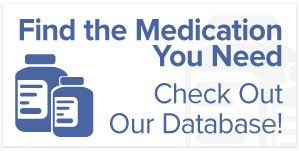Medical bills can build up much like any other type of debt, but much faster. That’s why it is important to have health insurance in place to help cover the expenses. But not everyone has access to health insurance through their employer or private plans.
Health Insurance at A Glance
Health insurance is a type of insurance that covers the cost of medical care for individuals and families. It helps by spreading out the expenses associated with medical services among many people, meaning one person doesn’t have to pay all the costs. Health insurance plans usually include copayments, coinsurance, deductibles, and/or other types of payments.
To get health insurance, people typically have to pay a certain amount each month for their coverage. This is known as the premium, and it varies depending on the type of health insurance plan chosen.
When they fall ill, the insurance company generally pays for the cost of treatment. However, some plans may require the individual to pay a certain amount out of pocket before the insurance kicks in, known as the deductible.
With the skyrocketing medical costs, insurance is a must-have for anyone who wants to protect themselves and their family from financial loss.
What to Do if You Don’t Have Health Insurance
When you don’t have access to health insurance, you still have options. Here are some tips on what you can do:
Research Government Programs
Many states offer programs to help uninsured individuals access affordable healthcare coverage. The most common of these programs is Medicaid which provides free or low-cost healthcare coverage for those who qualify.
Look into Discount Programs
Many healthcare providers offer discounted rates for individuals without health insurance. Don’t be afraid to ask your doctor or local hospital if they have any discount programs you could take advantage of.
Shop Around for Private Plans
If the government and discount programs don’t work out, private health insurance plans can still help cover medical costs. You can shop around and compare plans from different insurers to find one that fits your budget and meets your needs. It’s important to check the coverage carefully before signing up, as some may have high deductibles or other restrictions.
Create a Savings Account
Creating a savings account specifically for medical expenses is a great way to prepare in case you get sick or injured. Start by setting aside a small amount each month and gradually increase the amount over time. This can help you cover out-of-pocket expenses due to an unexpected illness or injury.
Get Educated on Health Care Costs
Knowing how much different medical services cost can be beneficial when making decisions about your care. Many resources are available online, such as price transparency websites, that can give you an idea of how much certain procedures might cost in your area. Knowing these costs can help you budget for them and make more informed decisions about your care.
Final Thoughts
Overall, not having health insurance can seem daunting, but there are options out there that can help you get the care you need. Researching government programs, looking into discount programs, shopping around for private plans, creating a savings account, and getting educated on healthcare costs can all be great ways to find coverage and manage your medical bills. With a little research and preparation, you can protect yourself financially while still getting the care you need.



